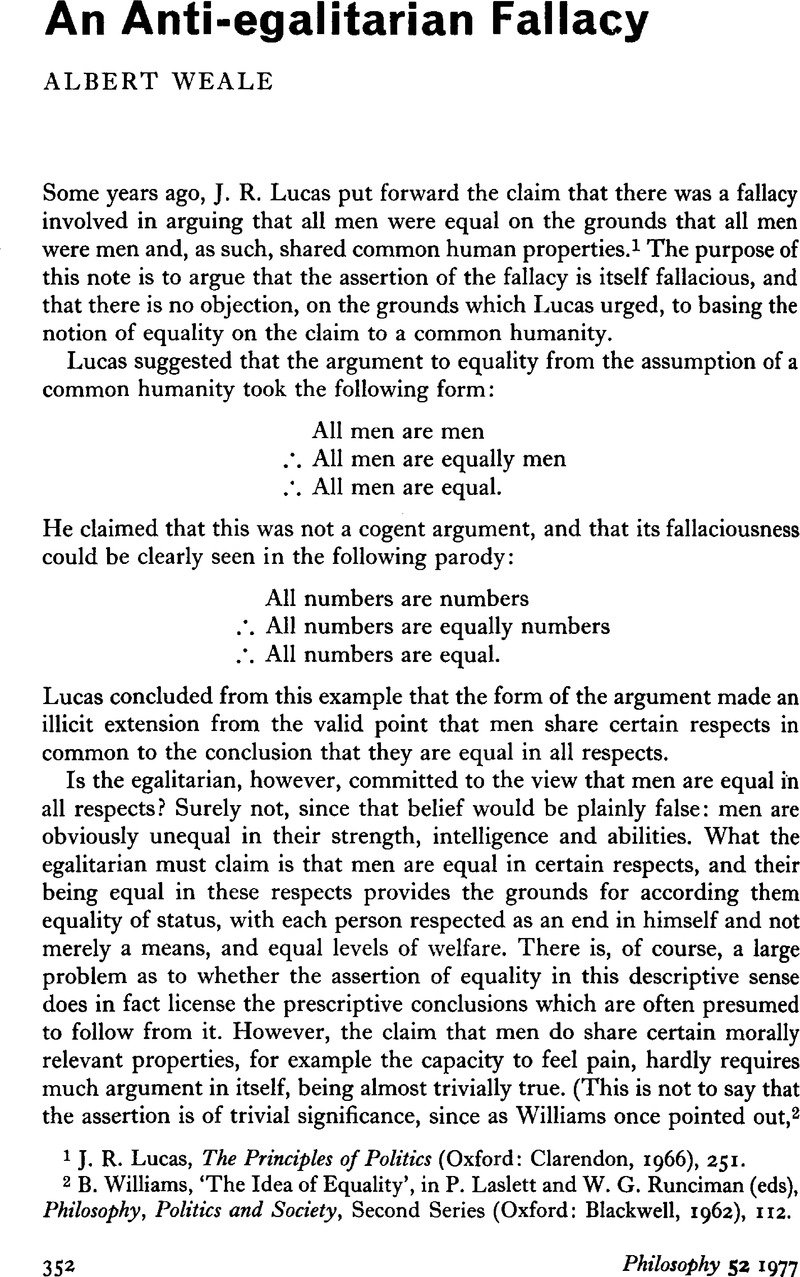No CrossRef data available.
Article contents
An Anti-egalitarian Fallacy
Published online by Cambridge University Press: 30 January 2009
Abstract

- Type
- Discussion
- Information
- Copyright
- Copyright © The Royal Institute of Philosophy 1977
References
1 Lucas, J. R., The Principles of Politics (Oxford: Clarendon, 1966), 251.Google Scholar
2 Williams, B., ‘The Idea of Equality’, in Laslett, P. and Runciman, W. G. (eds), Philosophy, Politics and Society, Second Series (Oxford: Blackwell, 1962), 112.Google Scholar
3 Op. cit., 244.
4 For these properties see Allen, R. G. D., Basic Mathematics (London: Macmillan, 1962), 28–30.Google Scholar The property of forming a closed set under binary operations is expressed in the following definition: for any two rational numbers a and b and for any binary operation β. aβb is a rational number.
5 This note was written during my tenure of the James Knott Fellowship in the Department of Politics, University of Newcastle upon Tyne.


